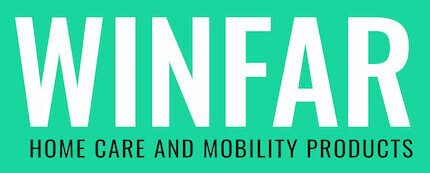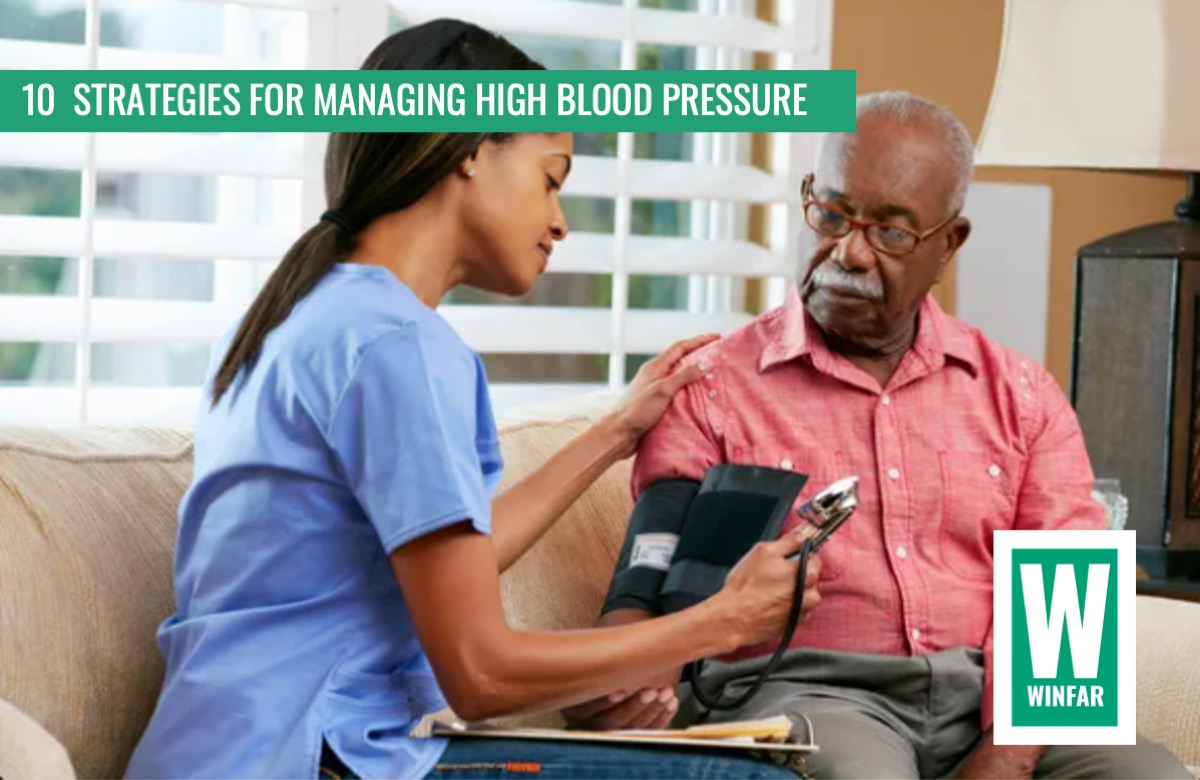High blood pressure, also known as hypertension, is a major health problem that is common in older adults. Often dubbed “the silent killer,” hypertension typically manifests without any visible signs or symptoms, that you can see or feel. Though high blood pressure affects nearly half of all adults, many may not even be aware they have it.
As our bodies age, the intricate network of blood vessels, known as the vascular system, changes. Arteries, essential conduits for blood flow, gradually stiffen, leading to an increase in blood pressure. Remarkably, this can be true even for people who have heart-healthy habits and feel just fine.
This silent nature of the beast, is what makes it so scary. Silently wreaking havoc on blood vessels and significantly elevating the risk of severe, sometimes fatal, health complications including cardiovascular disease (such as heart disease and stroke), vascular dementia, eye problems, and kidney disease. Given that almost half of all older adults grapple with this silent menace, it is an important subject to address.
The good news is that blood pressure can be controlled in most people. While a quick fix remains elusive, hypertension can be effectively managed through a combination of lifestyle modifications and prescribed medications.
What is high blood pressure?
Blood pressure, is the force exerted by blood against arterial walls as the heart contracts and relaxes. This pressure serves as a vital indicator of cardiovascular health.
During a routine assessment, healthcare professionals utilise a blood pressure cuff to measure two key parameters: systolic pressure, the pressure caused by your heart contracting and pushing out blood and diastolic pressure, the pressure exerted when your heart relaxes and fills with blood.
The classification of blood pressure levels hinges on these two numerical values:
- Low blood pressure (hypotension) is systolic blood pressure lower than 90 or diastolic blood pressure lower than 60. If you have low blood pressure, you may feel lightheaded, weak, dizzy, or even faint. It can be caused by not getting enough fluids, blood loss, some medical conditions, or medications, including those prescribed for high blood pressure.
- Normal blood pressure: Systolic pressure below 120 and diastolic pressure below 80, indicative of optimal cardiovascular health.
- Elevated blood pressure: Systolic pressure between 120 and 129, with a diastolic pressure below 80.
- High blood pressure: Systolic pressure of 130 or higher, or diastolic pressure of 80 or higher, posing significant health risks.
For older adults, often the first number (systolic) is 130 or higher, but the second number (diastolic) is less than 80. This problem is called isolated systolic hypertension and is due to age-related stiffening of the major arteries. It is the most common form of high blood pressure in older adults and can lead to serious health problems in addition to shortness of breath during light physical activity, lightheadedness upon standing too fast, and falls.
Do I have High Blood Pressure?
While hypertension can affect anyone, certain factors predispose individuals to its onset. Some medical conditions, such as metabolic syndrome, kidney disease, and thyroid problems, can cause high blood pressure. And your age, gender, family history, and race all play a contributing role.
These include:
- Age. The chance of having high blood pressure increases as you get older, especially isolated systolic hypertension.
- Gender. Before age 55, men have a greater chance of having high blood pressure.
Women are more likely to have high blood pressure after menopause. - Family history. High blood pressure runs in some families.
- Race. African Americans are at increased risk for high blood pressure.
The Gravity of Hypertension
Beyond mere numerical readings, hypertension poses a formidable threat to overall well-being, particularly among seniors. Routine checks of your blood pressure will help detect increasing levels. If your blood pressure reading is high at two or more check-ups, your doctor should ask you to start monitoring your blood pressure at home. Your doctor will work with you to find a blood pressure target that is best for your well-being and may suggest exercise, changes in your diet, and medications.
Left unchecked, it serves as a precursor to debilitating conditions such as coronary artery disease, stroke, and kidney failure. Its silent progression underscores the importance of proactive monitoring and management.
How can I control my blood pressure?
You can often lower your blood pressure by changing your day-to-day habits and by taking medication if needed. Treatment requires ongoing evaluation and discussions with your doctor, especially if you have other medical conditions such as diabetes.
Here are a few lifestyle changes you can make to help prevent and lower high blood pressure:
- Aim for a healthy weight.
Being overweight adds to your risk of high blood pressure. In general, to maintain a healthy weight, you need to burn the same number of calories as you eat and drink. - Exercise. Moderate activity, such as brisk walking or swimming, can lower high blood pressure. Set incremental goals so you can exercise safely and work your way up to at least 2.5 hours per week.
Please do check with your doctor before you start an exercise plan, just to ensure there are no underlying health problems that need attention. - Eat a heart-healthy diet. A balanced diet of vegetables, fruits, grains, protein, dairy, and oils — such as the Dietary Approaches to Stop Hypertension (DASH) eating plan — can lower your blood pressure.
- Cut down or limit your salt intake. As you get older, the body and blood pressure become more sensitive to salt (sodium), which is added to many foods during processing or preparation.
- Drink less alcohol. Alcohol can affect your blood pressure. For those who drink, men should have no more than two drinks a day and women no more than one a day to lower their risk of high blood pressure.
- Don’t smoke. Smoking increases your risk for high blood pressure, heart disease, stroke, and other health problems. If you smoke, quit. The health benefits of quitting can be seen at any age — you are never too old to quit.
- Get a good night’s sleep. Tell your doctor if you’ve been told you snore or sound like you stop breathing for moments when you sleep. This may be a sign of a problem called sleep apnea. Treating sleep apnea and getting a good night’s sleep can help to lower blood pressure.
- Manage stress.
In essence, hypertension represents a complex interplay of physiological processes demanding a comprehensive, holistic approach to management. In addition to recommending lifestyle changes, your doctor will likely prescribe medication to lower your blood pressure to a safe level. Medication can control your blood pressure, but it can’t cure it. If your doctor starts you on medication for high blood pressure, you may need to take it long term.

